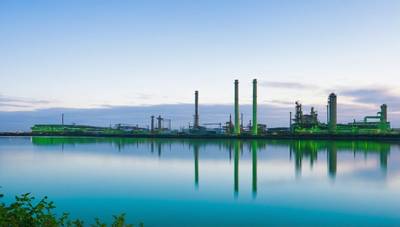BP abandons plans for Rotterdam biofuels facility
A company spokesperson announced on Monday that BP had stopped working on its Rotterdam Biofuels Plant. This is the latest in a series of abandoned biofuels by oil companies like BP and Shell due to weak demand.
BP announced in February that, after a disastrous foray into the renewables sector in 2020, it would redirect its spending to oil and gas projects.
The company also dropped its goal to produce 100,000 barrels of biofuels per day by the end the decade.
In recent months, BP has halted its plans to build standalone plants for biofuels at its Kwinana plant in Australia. It also paused the work at plants located in Lingen in Germany and Cherry Point in United States. The Castellon site, in Spain, remains a possible long-term development option.
BP has said that by 2023, these plants and the Rotterdam Project were expected to produce a total of 50,000 bpd. No final investment decision has been made on any of these projects.
This leaves BP’s biofuels division focused on BP Bunge Bioenergia, a Brazilian company with a capacity of 50,000 bpd ethanol produced from sugarcane and co-processing in existing oil refineries.
BP reported in February that they produced approximately 10,000 bpd biofuels by co-processing.
"BP has halted further development work for a biofuels facility in our Rotterdam refinery. We will continue to evaluate options for biofuels at our refinery sites and we will be looking for capital-light solutions.
BP has set a 15% return on investment for biofuels, as well as upstream oil and natural gas projects.
BP, which had promised to improve the performance of its downstream operations, announced in August that they had reduced costs by $1 billion compared to 2023 and increased retail earnings for the first half by 50%.
Shell announced this month that the company would not be able to compete if it were to resume construction on its Rotterdam Biofuel Plant.
(source: Reuters)



